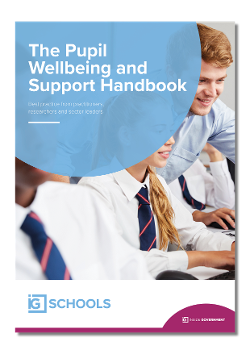Narrowing the Attainment Gap: 5 Priorities for SEND Pupils
Sonia Blandford shares her insights on narrowing the gap for SEND pupils. To hear more from Sonia and others including the DfE please see our Online SEND conference here: https://sendprovision.co.uk/
At Achievement for All we have developed, in partnership with others across education, business and the third sector, a collaborative Every Child Included in Education manifesto that challenges parliamentarians, funders and decision makers to improve the outcomes of every child across every phase of education, in the workplace and in life. Each of these priorities will need to be emphasised in the unprecedented impact of COVID-19. Quite simply, due to changes to daily routines, school closures or the reduction in services, issues with social and health care, and additional pressures on parents and carers the gap in learning will increase. We have a shared responsibility to support all children and young people during this period, to be aware that change for us all is intensified for children and young people identified with needs.
The five priorities outlined in the manifesto can be viewed here. This includes a focus on reducing children and young people being excluded in education and closing the gap for SEND, too often the marginalised and forgotten group.
We must take action including:
- Having a continued focus on eradicating bullying particularly to support those with SEND who are at a statistically increased risk of discrimination. We need to ensure that settings and schools have strategies available to them to support all children and young people who are suffering as a result of bullying, as well as their families.
- Making training on SEND/disadvantaged children, and the different ways they learn, compulsory for all teachers and support professionals. Education providers who achieve the best outcomes for their pupils/students with SEND have high aspirations for their learning and focus on enabling them to become as independent as possible.
- Narrowing the gap between the progress of SEND children and non-SEND children with a clear focus on what works. Achievement for All’s programme has already been proven to increase rates of progress for SEND pupils across the UK.
- Interrogating pupil data frequently and rigorously to improve both the progress and attainment of children and young people on SEN Support. This is of particular importance to those whose prior attainment is somewhere in the middle – often an underachieving group in schools.
- Supporting and offering training for professionals to transform outcomes for young people who offend,or are at risk of doing so, and who have SEND.
Until we get this right, those with SEND who require support will at best, not reach their full potential and at worst risk being permanently excluded from school and society. Much the same as is being experienced throughout COVID-19 when vulnerable and disadvantaged are need of additional support. An in-depth review is needed.
I would also suggest that government SEND funding directed to local authorities, schools, colleges and early years settings should be in the form of a bond, requiring both evidence of need and evidence of impact, i.e. the higher the need the more substantial the bond, the greater the impact on improving outcomes for children and young people identified with needs rewarded by a percentage increase. The AfA / PwC Social Impact Assessment model (2016), funded by the government, could provide a starting point for such a scheme.
Professor Sonia Blandford is one of the country’s foremost experts on social mobility and author of the influential publication: ‘Born to Fail? Social Mobility, A Working Class View’.
Founder and CEO of the award winning education charity, Achievement for All. Sonia is also visiting professor of education at UCL Institute of Education. She was named in Debrett’s list of the Top 500 Most Influential People in the UK in 2015 and 2016 and was among the 2016 Women of the Year.
Follow Sonia on Twitter at @SoniaAFA3AS
Read more about some of these key issues via the IG Schools Pupil Wellbeing and Support Handbook.




